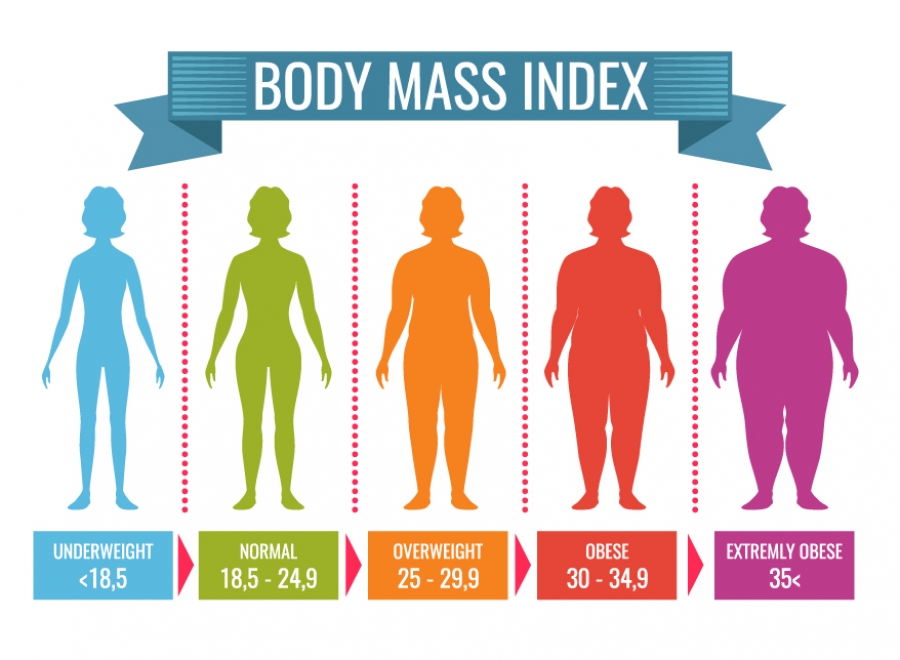
Highlights
- Obesity is a medical condition caused by excessive nutrient intake, particularly energy, beyond the body’s needs.
- Causes of overnutrition include high-calorie foods, lack of awareness, low physical activity, genetics, and environmental factors.
- Obesity can be caused by genetic, environmental, and lifestyle factors.
- Genetic factors play a role in obesity, but environmental factors have a greater impact on weight management.
- Obesity is associated with various health risks, including cardiovascular disease, type 2 diabetes, respiratory problems, joint problems, high blood pressure, certain cancers, liver disease, and more.
- Managing obesity involves lifestyle changes, behavioral therapy, medications, bariatric surgery, support groups, sleep hygiene, stress management, tracking progress, and long-term support.
- Researching functional foods targeted for obesity may be beneficial.
What is obesity?
Obesity is a medical condition caused by the excessive intake of nutrients (Overnutrition), especially energy, beyond the body’s needs. When a person consumes more calories than their body can burn, the excess energy is stored as fat, leading to weight gain and eventually obesity.
It results in excessive amount of body fat, which can lead to various health problems. It is typically defined by a body mass index (BMI) of 30 or higher, which is calculated by dividing a person’s weight in kilograms by their height in meters squared.

What causes over nutrition
Overnutrition can result from a variety of factors, including a diet high in calories, fats, and sugars, lack of physical activity, genetics, hormonal imbalances, and environmental factors such as access to unhealthy food options. Over time, excess weight gain can lead to the development of obesity and related health problems.
Here are some possible causes of overnutrition.
- Consuming high amounts of calorie-dense foods and drinks, such as fast food, sugary beverages, and snacks.
- Eating beyond the body’s energy needs due to lack of awareness, portion distortion or emotional reasons.
- Low physical activity levels that lead to fewer calories being burned.
- Genetics and epigenetics factors that can contribute to a predisposition to overnutrition and obesity.
- Environmental factors, such as food access, pricing and marketing, and other cultural and social factors that influence dietary and lifestyle choices.

Food safety knowledge is for all!

Every consumer deserves to have high quality and safe food. …Read more!

What causes obesity?
Obesity can be caused by a combination of genetic, environmental, and lifestyle factors, including:
- Genetics: Some people may have a genetic predisposition to gaining weight and developing obesity.
- Environmental factors: Factors such as access to unhealthy food options, portion sizes, sedentary lifestyles, and cultural or social norms can contribute to overnutrition and weight gain.
- Lifestyle choices: Lack of physical activity, poor dietary choices, and inadequate sleep can all contribute to the development of obesity.
- Medical conditions: Certain medical conditions such as hypothyroidism, Cushing’s syndrome, and polycystic ovary syndrome can cause weight gain and increase the risk of obesity.
- Medications: Some medications, such as certain antidepressants and steroids, can cause weight gain and increase the risk of obesity.
It is important to note that obesity is a complex and multifactorial condition, and that the causes may vary from person to person. Successful management of obesity often involves identifying and addressing the underlying causes, as well as promoting healthy lifestyle changes.
Genetics of obesity
Genetics plays a role in the development of obesity, and some people may be more predisposed to gain weight than others due to genetic factors. There are many genes that have been linked to obesity, and some of them are involved in regulating appetite, metabolism, and the storage of fat in the body.
However, genetics alone is not the only cause of obesity. Environmental factors, such as diet and lifestyle choices, also play a significant role in determining a person’s weight.
In fact, studies have shown that while genetics may account for up to 70% of a person’s risk for obesity, environmental factors such as diet and physical activity level have a greater impact on weight management. Therefore, it is essential to address both genetic and environmental factors in the prevention and management of obesity.

Obesity may be:
- Monogenic – caused by mutations in a single gene.
- Polygenic – caused by the combined effects of multiple genetic variations, each of which contributes a small amount to a person’s overall risk of developing obesity.
Monogenic obesity
Monogenic obesity is a rare form of obesity that is caused by mutations in a single gene, which disrupts the body’s ability to regulate appetite, metabolism, or energy expenditure.
Unlike the more common form of obesity, which is influenced by multiple genetic and environmental factors, monogenic obesity is caused by a specific genetic abnormality, and it can run in families.
Monogenic obesity typically presents in childhood and may be associated with other health problems, such as developmental delays or hormonal imbalances. It can be diagnosed through genetic testing and managed through a combination of lifestyle changes and medical interventions, such as medication or surgery, depending on the underlying cause.
There are several genes that have been identified as playing a role in monogenic obesity, including:
- Leptin (LEP) gene: This gene produces the hormone leptin, which plays a key role in regulating appetite and energy balance. Mutations in the LEP gene can cause severe obesity in both children and adults.
- Leptin receptor (LEPR) gene: This gene produces the protein that binds to leptin and transmits its signals to the brain. Mutations in the LEPR gene can interfere with leptin signaling, leading to obesity.
- Melanocortin 4 receptor (MC4R) gene: This gene produces a protein that is involved in regulating appetite and metabolism. Mutations in the MC4R gene are the most common cause of monogenic obesity, and can result in severe obesity in both children and adults.
Other genes that have been linked to monogenic obesity include the pro-opiomelanocortin (POMC) gene, the brain-derived neurotrophic factor (BDNF) gene, and the SH2B adaptor protein 1 (SH2B1) gene.
Monogenic obesity is a relatively rare condition, and is estimated to account for only a small proportion of all cases of obesity. Treatment may involve lifestyle changes such as dietary modifications and increased physical activity, but in some cases, bariatric surgery or other medical interventions may be necessary.
How Leptin (LEP) gene works
The Leptin (LEP) gene is responsible for producing the hormone leptin, which plays a key role in regulating appetite and energy balance in the body. Leptin is primarily produced by adipose (fat) cells and acts as a signal to the brain, providing information about the amount of body fat present and helping to regulate food intake and energy expenditure.
When body fat stores increase, leptin levels rise, signaling the brain to reduce food intake and increase energy expenditure. Conversely, when body fat stores decrease, leptin levels decrease, signaling the brain to increase food intake and reduce energy expenditure.
Leptin works by binding to specific receptors in the hypothalamus, a region of the brain that plays a key role in regulating appetite and energy balance. This binding triggers a series of signaling pathways that can affect the activity of various neurons in the hypothalamus, leading to changes in food intake and energy expenditure.
In some cases, mutations in the LEP gene can lead to a deficiency or dysfunction of leptin, resulting in a condition called congenital leptin deficiency. This can cause severe obesity in affected individuals, as they lack the hormonal signals necessary to regulate appetite and energy balance. In other cases, mutations in the LEP gene can lead to elevated levels of leptin, which can also interfere with the body’s ability to regulate food intake and energy balance, leading to obesity.
Leptin receptor (LEPR) gene works
The Leptin receptor (LEPR) gene encodes for a protein called the leptin receptor, which is located on the surface of certain cells in the body, including those in the hypothalamus region of the brain.
Leptin is a hormone that is produced by fat cells and signals to the brain to regulate appetite and energy expenditure. When leptin binds to the leptin receptor, it activates a signaling pathway that reduces appetite and increases energy expenditure, helping to maintain a healthy body weight.
However, mutations or variations in the LEPR gene can disrupt the function of the leptin receptor and alter the body’s response to leptin. This can lead to a condition called leptin resistance, in which the body no longer responds to the signals of leptin and fails to regulate appetite and energy expenditure effectively.
How melanocortin 4 receptor (MC4R) gene works
The Melanocortin 4 receptor (MC4R) gene produces a protein called the melanocortin 4 receptor, which is a G protein-coupled receptor that is expressed in the hypothalamus of the brain. The MC4R plays a critical role in regulating food intake and energy balance.
The MC4R protein is activated by a family of hormones called melanocortins, which are produced in the brain and in other tissues. When activated by melanocortins, the MC4R protein triggers a series of signaling pathways that can influence the activity of neurons in the hypothalamus, leading to changes in food intake and energy expenditure.
In particular, activation of the MC4R protein is thought to promote feelings of satiety and reduce food intake, while also increasing energy expenditure. This is achieved through a variety of mechanisms, including the modulation of appetite-regulating hormones such as leptin, ghrelin, and insulin.
Mutations in the MC4R gene are the most common cause of monogenic obesity, accounting for up to 5% of cases. These mutations can interfere with the function of the MC4R protein, leading to disruptions in appetite regulation and energy balance that can contribute to the development of obesity.
Individuals with mutations in the MC4R gene may have an increased appetite, particularly for high-fat and high-sugar foods, and may also have a reduced ability to feel full or satisfied after eating. Treatment for individuals with MC4R-related obesity may involve lifestyle modifications such as diet and exercise, as well as medications or surgical interventions in some cases.
Polygenic obesity
Polygenic obesity is a common form of obesity that is caused by the combined effects of multiple genetic variations, each of which contributes a small amount to a person’s overall risk of developing obesity.
Unlike monogenic obesity, which is caused by a single genetic mutation, polygenic obesity is influenced by a complex interplay of genetic and environmental factors, including diet, physical activity, and other lifestyle choices.
Because polygenic obesity is caused by multiple genetic variations, it can be difficult to identify and diagnose through genetic testing alone. However, studies have identified many common genetic variations that are associated with obesity, and researchers are working to better understand the genetic and environmental factors that contribute to the development of this condition.
Dangers of being obese
There are a number of dangers associated with being obese. Here are some of the most significant risks:

- Cardiovascular disease: Being obese puts a significant strain on the heart, increasing the risk of heart disease, heart attack, and stroke.
- Type 2 diabetes: Obesity is a leading risk factor for type 2 diabetes, a disease that affects the body’s ability to regulate blood sugar levels and can lead to a host of health problems.
- Respiratory problems: Obese individuals are more likely to suffer from asthma, sleep apnea, and other respiratory problems.
- Joint problems: Excess weight puts additional strain on joints, which can lead to osteoarthritis and other joint problems.
- High blood pressure: Obesity is often associated with high blood pressure, which can lead to a range of health problems including heart disease and stroke.
- Certain cancers: There is evidence to suggest that obesity increases the risk of certain cancers, including breast, colon, and prostate cancer.
- Liver disease: Obesity is associated with fatty liver disease, a condition that can cause liver damage and lead to liver failure.
- Gallbladder disease: Obese individuals are at an increased risk of developing gallstones and other gallbladder problems.
- Pregnancy complications: Obesity can lead to complications during pregnancy, including gestational diabetes, high blood pressure, and pre-eclampsia.
- Infertility: Obese women may have difficulty getting pregnant due to hormonal imbalances and other factors.
- Gout: Obesity is a risk factor for gout, a painful condition caused by the buildup of uric acid crystals in the joints.
- Kidney disease: Obesity increases the risk of developing kidney disease, which can lead to kidney failure and the need for dialysis or a kidney transplant.
- Digestive problems: Obesity is associated with an increased risk of acid reflux, irritable bowel syndrome (IBS), and other digestive problems.
- Reduced mobility: Obese individuals may have difficulty with mobility and physical activity, which can lead to a sedentary lifestyle and further health problems.
- Depression: Obesity can lead to feelings of isolation, low self-esteem, and depression, which can in turn lead to further health problems.
It’s important to note that these risks are not limited to individuals who are severely obese. Even individuals who are moderately overweight are at increased risk for many of these health problems.

How can you manage obesity
There are several ways in which someone may manage obesity, including:
- Lifestyle changes: Making gradual changes to one’s diet and exercise habits can help to reduce calorie intake and increase energy expenditure, which can lead to weight loss. This may include increasing physical activity levels, reducing portion sizes, and choosing healthier food options.
- Behavioral therapy: Working with a healthcare professional, such as a registered dietitian or therapist, to address underlying psychological and emotional factors that may contribute to overeating or sedentary behavior.
- Medications: Prescription medications may be used to help manage obesity in certain cases, such as when lifestyle changes alone are not effective.
- Bariatric surgery: Surgical procedures, such as gastric bypass or sleeve gastrectomy, may be recommended for people with severe obesity who have not been able to achieve weight loss through other methods.
- Support groups: Joining a support group or community of others who are also managing obesity can provide motivation, encouragement, and accountability.
- Sleep hygiene: Getting enough high-quality sleep is important for weight management, as sleep deprivation can disrupt hormonal balance and increase appetite. Improving sleep hygiene by creating a relaxing sleep environment, sticking to a regular sleep schedule, and avoiding caffeine and electronics before bedtime can help to improve sleep quality.
- Stress management: Chronic stress can contribute to overeating and weight gain, so finding effective ways to manage stress, such as meditation, deep breathing, or yoga, can help to support weight loss efforts.
- Tracking progress: Regularly monitoring weight, diet, and physical activity can help to track progress towards weight loss goals, identify areas for improvement, and maintain motivation.
- Long-term support: Maintaining weight loss over the long-term can be challenging, so it is important to have ongoing support from a healthcare professional, support group, or friends and family. This can help to provide accountability, encouragement, and guidance for maintaining healthy habits and preventing weight regain.
It is important to note that there is no one-size-fits-all approach to managing obesity, and what works best for one person may not work for another. A healthcare professional can help to develop a personalized plan for weight management based on individual needs, preferences, and goals.
Food scientists are constantly working on functional foods targeted to address health conditions such as obesity. Good to research for products that may best benefit you.
Our Blog ↗
Read the latest from our blog
Ask a Question ↗
Ask a question and get answers from our community
Give Feedback ↗
We value your feedback.

